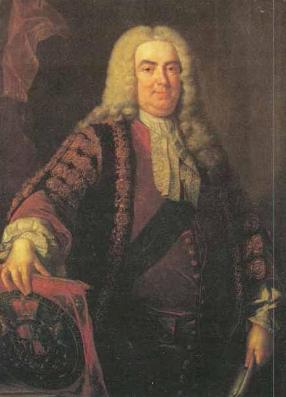Prime Path
| Time Limit: 1000MS | Memory Limit: 65536K | |
| Total Submissions: 18362 | Accepted: 10327 |
Description
 The ministers of the cabinet were quite upset by the message from the Chief of Security stating that they would all have to change the four-digit room numbers on
their offices.
The ministers of the cabinet were quite upset by the message from the Chief of Security stating that they would all have to change the four-digit room numbers on
their offices.— It is a matter of security to change such things every now and then, to keep the enemy in the dark.
— But look, I have chosen my number 1033 for good reasons. I am the Prime minister, you know!
— I know, so therefore your new number 8179 is also a prime. You will just have to paste four new digits over the four old ones on your office door.
— No, it’s not that simple. Suppose that I change the first digit to an 8, then the number will read 8033 which is not a prime!
— I see, being the prime minister you cannot stand having a non-prime number on your door even for a few seconds.
— Correct! So I must invent a scheme for going from 1033 to 8179 by a path of prime numbers where only one digit is changed from one prime to the next prime.
Now, the minister of finance, who had been eavesdropping, intervened.
— No unnecessary expenditure, please! I happen to know that the price of a digit is one pound.
— Hmm, in that case I need a computer program to minimize the cost. You don't know some very cheap software gurus, do you?
— In fact, I do. You see, there is this programming contest going on... Help the prime minister to find the cheapest prime path between any two given four-digit primes! The first digit must be nonzero, of course. Here is a solution in the case above.
1033The cost of this solution is 6 pounds. Note that the digit 1 which got pasted over in step 2 can not be reused in the last step – a new 1 must be purchased.
1733
3733
3739
3779
8779
8179
Input
One line with a positive number: the number of test cases (at most 100). Then for each test case, one line with two numbers separated by a blank. Both numbers are four-digit primes (without leading zeros).
Output
One line for each case, either with a number stating the minimal cost or containing the word Impossible.
Sample Input
3 1033 8179 1373 8017 1033 1033
Sample Output
6 7 0
Source
题意:给定两个素数n和m,要求把n变成m,每次变换时只能变一个数字,即变换后的数与变换前的数只有一个数字不同,并且要保证变换后的四位数也是素数。求最小的变换次数;如果不能完成变换,输出Impossible。
无论怎么变换,个位数字一定是奇数(个位数字为偶数肯定不是素数),这样枚举个位数字时只需枚举奇数就行;而且千位数字不能是0。所以可以用广搜,枚举各个数位上的数字,满足要求的数就加入队列,直到变换成功。因为是广搜,所以一定能保证次数最少。
#include <iostream>
#include <cstdio>
#include <cstring>
#include <queue>
#include <cmath>
using namespace std;
struct node
{
int step;
int x;
}s,v;
int n,m;
int vis[10000];
int judge(int x)
{
if(x==0||x==1)
return 0;
else if(x==2||x==3)
return 1;
else
{
for(int i=2;i<=(int)sqrt(x);i++)
{
if(x%i==0)
return 0;
}
return 1;
}
}
void bfs()
{
queue<struct node>q;
s.x=n;
s.step=0;
q.push(s);
while(!q.empty())
{
v=q.front();
q.pop();
if(v.x==m)
{
printf("%d\n",v.step);
return;
}
for(int i=1;i<=9;i+=2)//处理个位
{
int num=v.x/10*10+i;
if(!vis[num]&&judge(num)&&num!=v.x)
{
vis[num]=1;
s.x=num;
s.step=v.step+1;
q.push(s);
}
}
for(int i=0;i<=9;i++)//处理十位
{
int num=v.x/100*100+i*10+v.x%10;
if(!vis[num]&&judge(num)&&num!=v.x)
{ vis[num]=1;
s.x=num;
s.step=v.step+1;
q.push(s);
}
}
for(int i=0;i<=9;i++)处理百位
{
int num=v.x/1000*1000+i*100+v.x%100;
if(!vis[num]&&judge(num)&&num!=v.x)
{ vis[num]=1;
s.x=num;
s.step=v.step+1;
q.push(s);
}
}
for(int i=1;i<=9;i++)处理千位
{
int num=i*1000+v.x%1000;
if(!vis[num]&&judge(num)&&num!=v.x)
{ vis[num]=1;
s.x=num;
s.step=v.step+1;
q.push(s);
}
}
}
printf("Impossible\n");
return;
}
int main()
{
int T;
scanf("%d",&T);
while(T--)
{
scanf("%d%d",&n,&m);
memset(vis,0,sizeof(vis));
vis[n]=1;
bfs();
}
return 0;
}





 本文介绍了一个有趣的算法问题:如何从一个四位素数通过改变一位数字的方式转换到另一个四位素数,且每一步转换后得到的仍然是素数。文章提供了一种解决方案,利用广度优先搜索(BFS)来寻找最短的转换路径。
本文介绍了一个有趣的算法问题:如何从一个四位素数通过改变一位数字的方式转换到另一个四位素数,且每一步转换后得到的仍然是素数。文章提供了一种解决方案,利用广度优先搜索(BFS)来寻找最短的转换路径。

















 被折叠的 条评论
为什么被折叠?
被折叠的 条评论
为什么被折叠?








